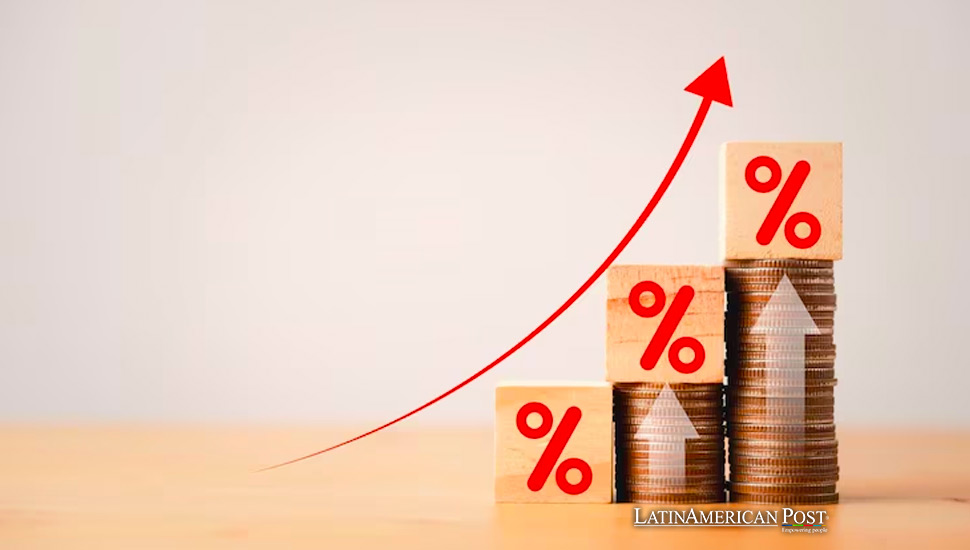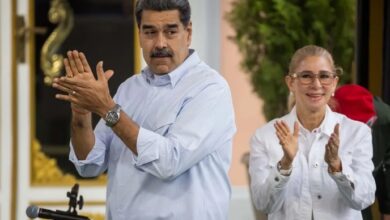Venezuela’s Balancing Act: Curbing Inflation Amid Election Year Challenges

As Venezuela approaches its presidential elections, the government strategizes to combat inflation by stabilizing the bolivar-dollar exchange rate and cautiously managing public spending amidst U.S. sanctions and a prolonged economic crisis.
Economic Stabilization Amidst Political Tensions
In the shadow of an impending presidential election, Venezuela’s government intensifies its efforts to mitigate inflation, a move critical to its economic stabilization agenda. This strategy involves maintaining a steady bolivar-dollar exchange rate and judiciously handling government expenditures to prevent further spikes in consumer prices. The backdrop to this economic maneuvering is a nation rich in oil but plagued by U.S. sanctions tied to allegations of political repression and illicit activities. Venezuela’s financial turmoil, characterized by persistent shortages, a rapidly depreciating currency, and hyperinflation, has posed significant challenges for its population.
In 2023, consumer prices in Venezuela surged by nearly 190%, marking one of the highest inflation rates globally, as the cost of essential goods soared and the bolivar depreciated dramatically against the dollar. However, a slight improvement was observed in January, with year-on-year price increases slowing to 107%. Under President Nicolas Maduro’s administration, Venezuela has seen single-digit monthly price rises for ten consecutive months, a trend attributed to an orthodox anti-inflation policy initiated in 2021. This policy includes injecting U.S. dollars into the economy and imposing strict credit and spending controls.
Government’s Focus on Exchange Rate and Inflation Management
President Maduro has optimistically proclaimed that Venezuela will achieve a “definitive victory” against inflation this year, aspiring to return to double-digit annual inflation rates, a figure last seen in 2014. The government’s focus remains on lowering inflation and stabilizing the exchange rate, maintaining the exchange rate at 36 bolivars to the dollar after a 38% depreciation in 2023. Efforts to manage inflation include the central bank and U.S. oil giant Chevron Corp injecting approximately $4.2 billion into the economy through dollar sales, a 17% increase from the previous year.
Amid these economic adjustments, Venezuela faces a spending dilemma. Following a relaxation of U.S. oil sanctions linked to an electoral agreement with the opposition, the Maduro government anticipated a 27% increase in revenues from the state oil company, PDVSA. These anticipated earnings were expected to fund social spending initiatives to garner electoral support. However, recent shifts in the government’s stance towards Washington and domestic opposition have introduced uncertainties, particularly with the U.S. indicating that oil sanction reliefs may expire in April if the opposition’s candidate is not allowed to compete in the election. This situation presents a problem for the government: attracting voters without exacerbating inflation.
Also read: Potential Renewal of U.S. Sanctions Threaten Venezuela’s Oil Sector and Economic Recovery
The Venezuelan government’s attempts to navigate these economic and political waters reflect broader challenges across Latin America. Countries like Argentina, Brazil, and Mexico have also grappled with the complexities of managing inflation, stabilizing currencies, and fostering economic growth amid political transitions and external pressures. Each nation’s experience underscores the intricate balance between monetary policy, political strategy, and social well-being, highlighting the diverse yet interconnected nature of Latin America’s economic landscape. As Venezuela strides towards its elections, its efforts to curb inflation amidst myriad challenges offer a glimpse into the region’s persistent struggle for stability and prosperity.




